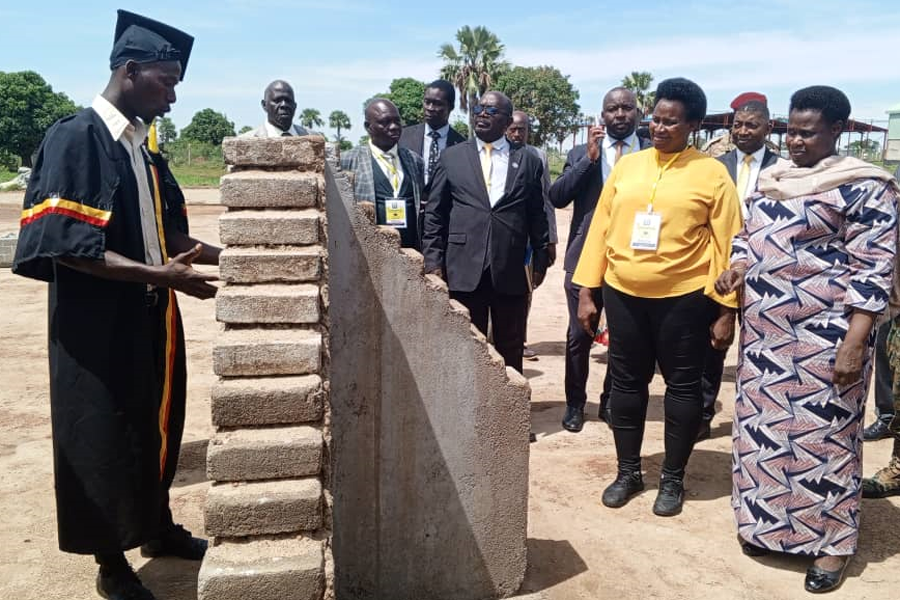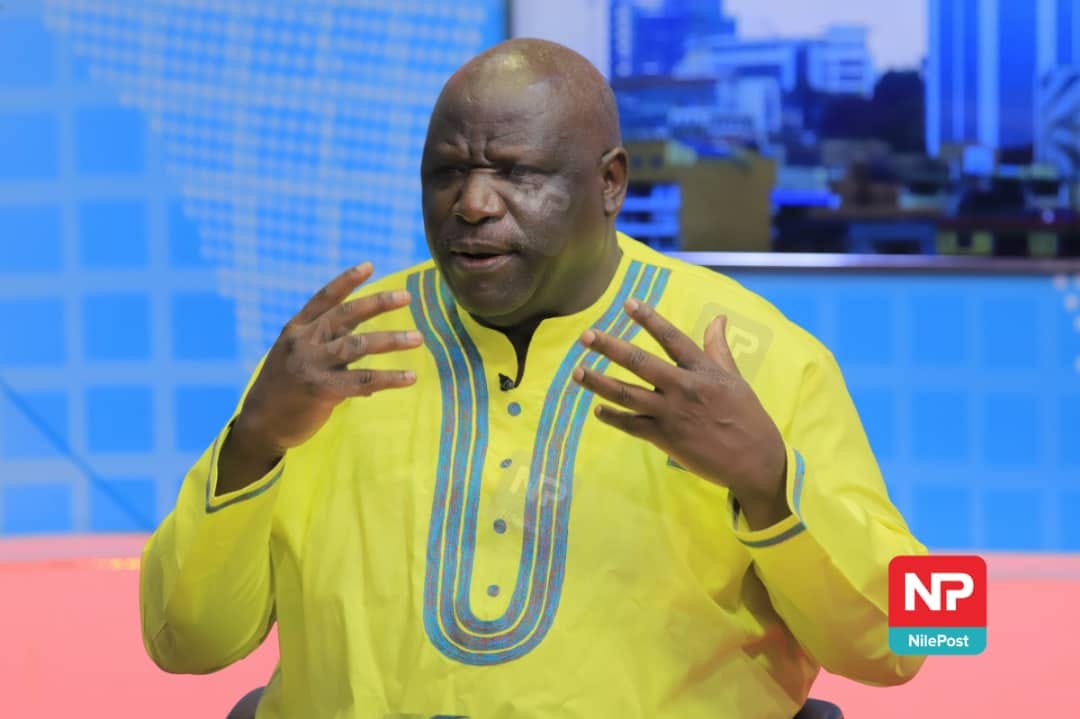AFRICA NOW: Mr. President, let us take a new perspective on the 4th Industrial Revolution
By Silver Kayondo
I listened attentively to President Museveni’s exposition on the stages of industrial revolution and Africa’s transformation agenda at the 2019 “Africa Now” Summit organized by the Africa Strategic Leadership Centre (ASLC) on the 12th-13th March 2018 at the Commonwealth Resort, Munyonyo. I have also had the benefit of reading his official speech uploaded on the State House website.
Keep Reading
First and foremost, I would like to commend the President for the presentation he made and the interaction we had with him through the question and answer session after the youth panel. However, I do not quite agree with his analysis of Africa’s place in the 4th Industrial Revolution. He argued that unlike Europe, Africa has not yet completed the 2nd and 3rd and thus, it is premature for Africa to transition to the 4th Industrial Revolution since in the last 600years, the African Society has not metamorphosed into a two class society ─ the middle class and the skilled working class. He underpinned this reasoning on the basis that Africa still has a big peasant class.
However, his exposition did not factor in the catalytic exponentially of the 4th Industrial Revolution. Contrary to his submission that the 4th Industrial Revolution is centered on Artificial Intelligence (AI) with machines undertaking human tasks, AI is just one of the components of the 4th Industrial Revolution. In its widest form, the Fourth Industrial Revolution is an ubiquitous fusion of technologies of cyber-physical systems that is blurring the traditional lines between the physical, digital and biological spheres.
Beyond AI and machine learning, there are other critical drivers such as robotics (an interdisciplinary branch of engineering and science that includes mechanical engineering, electronic engineering, information engineering, computer science, and others, which deals with design, construction, operation, and use of robots, as well as computer systems for their control, sensory feedback, and information processing) , nanotechnology (manipulation of matter on an atomic, molecular, and supramolecular scale), quantum computing (use of quantum-mechanical phenomena such as superposition and entanglement to perform computation tasks), biotechnology, the Internet of Things (IOT), decentralized consensus, fifth-generation wireless technologies (5G), big data, additive manufacturing/3D printing and fully autonomous vehicles such as self-driving cars and unmanned aerial vehicles (UAVs).
Therefore, your Excellency, it is still very early to form such a conclusive opinion on the 4th Industrial Revolution and the likely impact of its transformational magnitude on Africa. Furthermore, we risk losing sight of the bigger picture if we tie the 4th Industrial Revolution (4IR) to just artificial intelligence and machine learning.
More critically, Mr. President, your exposition did not address the potential leapfrog effect presented by 4IR. It is possible to leapfrog from an agrarian economy to a 4IR economy without completely metamorphosing through the 2nd and 3rd industrial revolutions. For example, South Korea has grown at an average annual rate of more than 5 percent for 50 consecutive post-war years, making it the 11th largest economy in the world today. It has no natural resources, no particular geographical advantages, little human capital, and inherited a dilapidated infrastructure system from the Korean war. Yet, it has transformed in such a rapid time from agricultural transformation into low- and high-tech sectors, and now cursing to a post-industrial economy. This magic was underpinned by sophisticated consumer electronics, biotech and robotics and green industrialisation. Other interesting case studies are Estonia with its e-Estonia, ranked as 'the most advanced digital society in the world' by Wired and Singapore’s “Smart Nation” initiative that topped the 2017 Global Smart City Performance Index.
Furthermore, your Excellency, the new-age business models have also exhibited great capacity for leapfrog and scalability. For instance, Google, founded in 1998, is almost in every country in the world. In just 20 years, it posts revenue of about $40 billion and employs about 99,000 employees. Facebook was founded in 2004. In such a short time, it has scaled to about 2.2 billion users. It has revenue of about $56 billion. You can find similar stories with Amazon, Apple, Airbnb, Uber, etc. If you want domestic examples, you can look at Jumia, Safe Boda, Tugende, Zipline Rwanda, Ensibuuko, Ezee Money, Digest Africa, Drone Nerds Africa, etc as new businesses that have achieved scalable impact in a very short time. Fourth Industrial Revolution technologies are expected to create up to $3.7 trillion in value for companies and countries across global supply chains by 2025. Therefore, the earlier industrial revolutions you ably discussed were linear in nature. The 4IR is exponential. For instance, within just a decade, now nearly 6 out of 10 Ugandans use a digital payment platform- and the number is growing. Soon, we shall catch up with South Africa and Kenya.
Also, with the new 4IR digital business models, it offers an opportunity for young entrepreneurs to fail cheap, learn quickly and start again because there are very little sunk capital costs unlike in traditional “brick and mortar” business models such as manufacturing, agro-processing, assembling, etc. Basing on the above summation, I think how we (Uganda) engage with the 4IR is critical because unlike other revolutions where we had no competitive advantage, the 4IR is an opportunity for us to offer leadership. I need not mention that the leading global use cases on mobile money/fintech, agritech, drones/UAVs, robotics and blockchain are all in Africa- with Uganda playing a major ideation and catalytic role. I would propose the following;
• Increased R&D spending on 4IR technologies. We have been majorly doing this on our own as Technology Hubs and individuals using personal equity. We would like to see more government funding in these initiatives.
• Coherent and well-aligned government policies on matters of regulation and taxation of 4IR technologies such as financial technologies (fintechs) like mobile money, OTT services, drones, AI, IoT, etc. We can achieve this by forming regulatory sandboxes where the government seconds some of its staff to learn from the tech developers on how value is created, owned and shared in the digital economy. For instance, French regulators have “embedded” inside Facebook to examine how the company combats online hate speech.
• Introducing practical 4IR curriculum in the education system. This can be done using cheaper pilot exercises like innovation buses/labs to augment computer labs, partnership with industry such as technology, media, telecoms, financial institutions, etc.
• Lastly, we need to set up an independent tech-focussed Venture Capital Fund where innovators can apply for seed and early-stage financing to run items like ideation of new technologies, proof of concept, business modelling, etc. The government can acquire some equity in the promising ones and mainstream such companies in the procurement process with a ring-fence of 30% business going to local youth and women focussed entities as part of national content.
Your Excellency, I believe that if we harness the 4IR opportunities, we can gain from significant efficiency gains that can aid Uganda in leapfrogging some of the transformational barriers that you identified in your speech.
Silver Kayondo is a commercial lawyer, technology enthusiast, venture capital advisor and Fourth Industrial Revolution evangelist.
Twitter: @SilverKayondo
E-mail: lawyerkayondo@gmail.com













